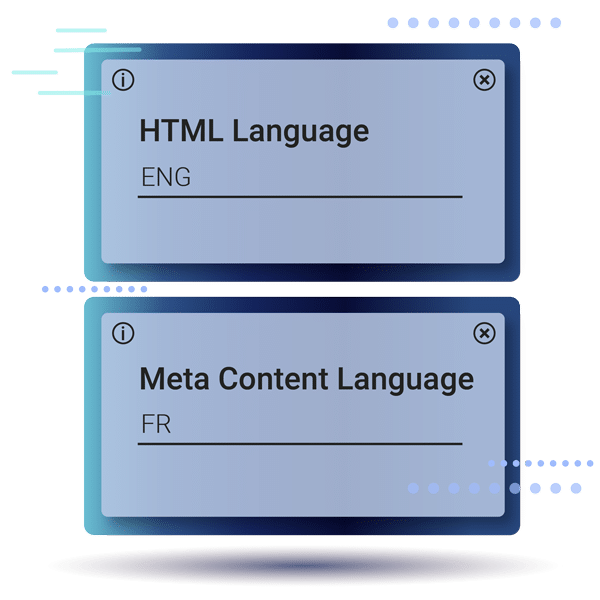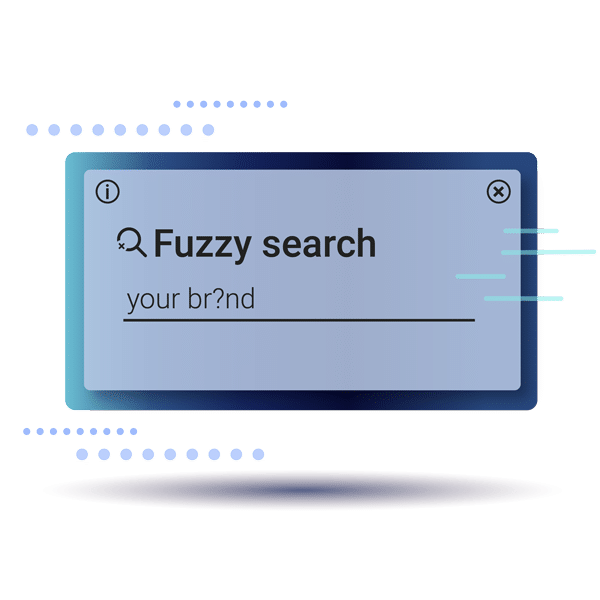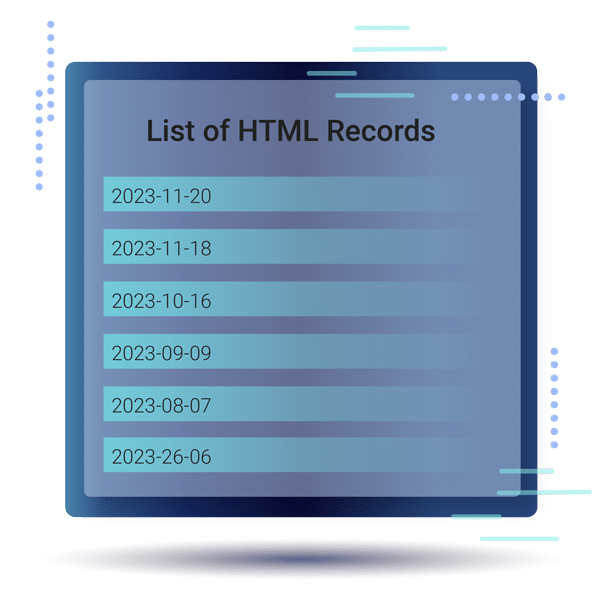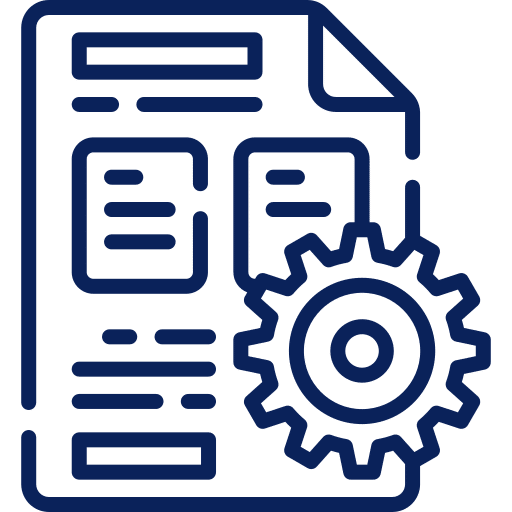MONITOR WEBSITE META CONTENT
HTML CONTENT
AND META TAGS
Search for keywords in the website meta information

DATA POINTS
Title
Meta Robots
Meta Keywords
Meta Description
H1 Text
Language Attributes
Link Tags
OpenGraph Texts

Find keywords in the HTML data
Detect the languages of the websites
Analyzing the language attributes of websites can provide useful insights for domain name registries. By checking the language attribute of a webpage, registries can gain insight into the language diversity of websites under their domain. This can help them understand the linguistic communities they serve better and can inform their marketing and outreach strategies. For example, if a significant number of sites under a .berlin TLD use Turkish as their primary language, the registry could consider offering support or documentation in Turkish.


Spot confusingly similar tags with Fuzzy search
Fuzzy string searching, also known as approximate string matching, is a technique used to find strings that match a given pattern to a certain degree, rather than requiring an exact match. This powerful tool enables digital investigators to uncover fake online stores and combat brand infringement. By leveraging fuzzy string searching, investigators can identify websites that deliberately misspell or alter well-known brand names in an attempt to deceive consumers and exploit brand reputation. This technique proves invaluable in protecting brands and safeguarding consumer trust.
Historical HTML records

AREAS OF APPLICATION

Tracking over 1.4 billion both registered and unregistered domains.

Storing 80 billion historical records since 2011.

Updating WHOIS records
every 45 days

Covering 99.5% of all generic and country-code top-level domain names.

